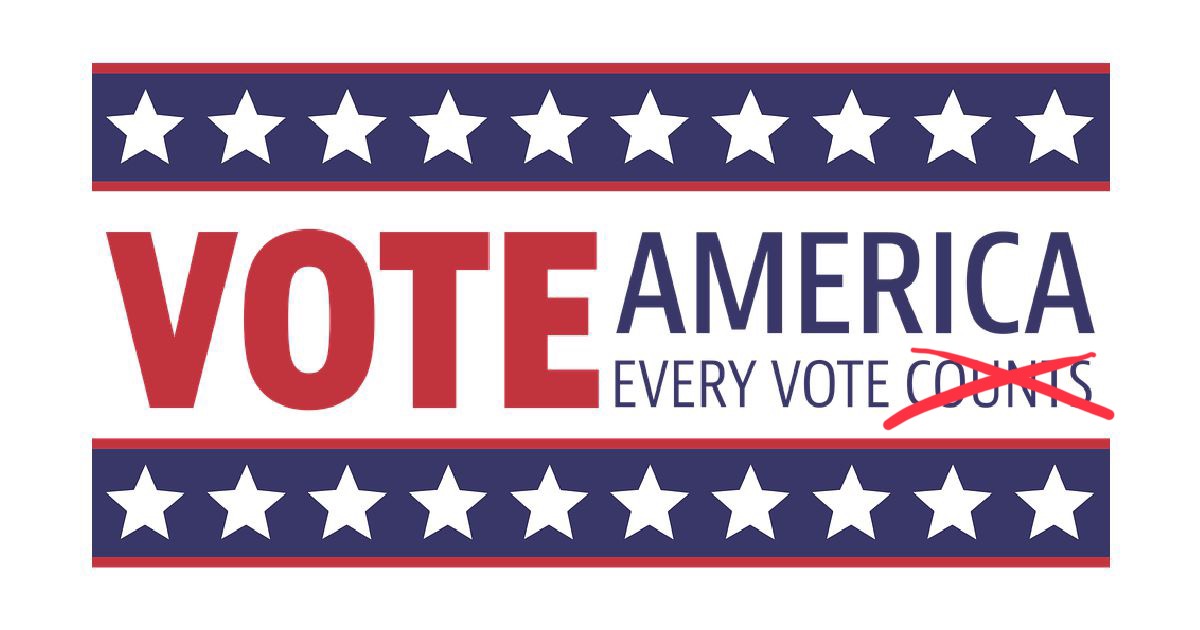Part I of this series describes the two major political parties as possessing monopoly control of our government. Part II discusses the tactics used by states and the two major parties to maintain such control. This article explores how to break such control.
Third-parties have fought to obtain ballot access for over a century. It has been a battle over challenges to petition signatures, and arbitrary filing deadlines among many roadblocks. Political third-parties sue states, arguing their laws deprive them of their constitutional rights to speech, association, due process and equal protection of law. The remedy sought is injunctive relief (an order to change the law or place third-parties on the ballot).
The flaw in the third-party challenge strategy is that injunctive relief is short-lived. As soon as injunctive relief is obtained, the state can change the rules for ballot access without any consequences for continuing to deny third-parties their constitutional rights.
For the third-parties to achieve a lasting constitutional victory, they must develop legal theories that provide more than injunctive relief. They must develop theories that allow for the recovery of damages and attorney’s fees for the harm caused. Ballot challenges are costly. Several third-parties in Texas recently sued the state alleging discriminatory ballot access, estimating the cost of securing the 83,717 valid signatures exceeds $600,000. But the real harm is not being afforded the right to stand for election and be heard.
Finding remedies beyond injunctive relief is difficult since states and their officials are immune from damage claims in state courts.
The most plausible remedy for addressing such conduct appears to be 42 U.S.C. Sec. 1983 (“Sec. 1983”), the Civil Rights Act of 1871. It provides a remedy to persons denied their civil rights by persons acting under color of law. A federal remedy was necessary since state sovereign immunity prohibited injured persons from reaching conduct of state officials who denied them their constitutional rights.
Professor Jack M. Beerman makes the salient point, “The likelihood that no state law claim exists is greatest when state law itself is alleged to violate the Federal Constitution, but it also exists when state official conduct unguided by state law is alleged to be unconstitutional.” Sec. 1983 provides federal remedies when state law is inadequate or where a state remedy is not available in practice for the deprivation of constitutional rights. Both situations exist in ballot access cases.
Initially, Sec. 1983 lawsuits were against defendants whose wrongdoing was clothed with the authority of state law. Over time however, the courts expanded Sec. 1983 to reach constitutional violations conducted jointly by a state employee and private part; actions in which the state assigned a public function to a private party, (e.g. education) and actions in which a private party performs an exclusively public function (such as administering primary elections).
The question to be resolved is whether Sec. 1983 can be applied to hold liable, state officials and private parties, acting under color of law, in ballot access cases, for conduct that denies the constitutional rights of third-parties or candidates?
The U.S. Supreme Court has not addressed the applicability of Sec. 1983 in ballot access challenges. It has however, held that the conduct of private parties in conducting a primary election is a government function, subject to constitutional safeguards.
Arkansas is an illustration of facts in need of a Sec 1983 remedy. Between 1977 and today, Arkansas enacted several laws requiring third-parties to secure petition signatures amounting to 3% of the last gubernatorial vote, combined with a short filing deadline. The statute was declared unconstitutional several times. Each time the legislature changed part of the law hoping to satisfy the court. Each new law was enjoined.
If the legislature lowered the number of signatures needed, it shortened the time for filing them.
In February 2019, the Arkansas legislature voted to repeal the 2007 law that reduced the signatures needed to 10,000 and reinstated the 3% requirement (26,746 valid signatures) that had been twice declared unconstitutional. It also required all signatures be collected in 90 days. On August 1, 2019, a District Court enjoined the 2019 law finding Arkansas’ compelling state interest of an overcrowded ballot to be without evidence since only the two major parties and the Libertarian party would be on the ballot.
Since a state only functions through individuals, the persons who manipulate laws to deprive third-parties of their constitutional rights are the persons who should be subject to a Sec. 1983 action.
As to the role of the Republicans and Democratic parties in ballot access cases, the facts need to be collected. But if history is a guide, finding liable parties is doable. In 2004, Pennsylvania’s Democratic party not only challenged the signatures on Ralph Nader’s third-party petition, but it also illegally used “a veritable army,” of state employees to challenge the signatures, according to a subsequent indictment.
The Sneaky Silencing of Third-Party Politicians, examines how the two major parties eliminate third-party competitors. It found in the 2004 presidential election after Nader filed his ballot petitions in fifty states, the Democratic party filed complaints in 19 states “with one goal in mind: getting Nader’s name removed from the ballot… As a result, Nader was off the ballot in Pennsylvania, Oregon, Missouri, Virginia and several other states.”
In Oregon, the Democrats packed the third-party’s convention hall with Democrats to prevent Nader’s supporters from getting into the hall and nominating him. Subsequently, when Nader took the alternative petition route, Democratic lawyers threatened petition circulators with felony prosecution and large fines.
Signature challenges by the two major parties take place even at the local level to keep third-party candidates off the ballot. Could this be the reason the two major parties’ control 99.96% of all elected positions?
Action: As recommended, a joint effort needs to gather the facts to support a Sec.1983 lawsuit, especially the names of the individuals who led the unconstitutional activities.
If successful, these lawsuits will change the nature of ballot access law from achieving ephemeral relief to securing easier access.





29 comments
slot machine games
real money casino online usa
viagra pill
purchase viagra
pala casino online
online slots for real money
cialis cheap cialis
buy generic cialis online
loan online
loans online
cash payday
short term loans
payday loans
cash advance
viagra cost
viagra prescription
generic cialis
cialis 20
cialis internet
5 mg cialis
cialis buy
20 cialis
buy cialis
generic cialis
5 mg cialis
new cialis
generic cialis
cialis internet
viagra price
viagra generic
real money casino
slots real money
casino online games
online gambling
free slots
online casino games real money
play casino
online slots real money
sildenafil citrate
viagra no prescription
viagra prices
buy viagra online
what is viagra
sildenafil citrate
tadalafil 40 mg
tadalafil 20
tadalafil generique
generic cialis tadalafil best buys
tadalafil tablets
cialis 20mg
cialis pill
generic cialis 20mg
casinos online
online slots real money
slot machine games
casino games
Buy brand viagra
Buy viagra no prescription